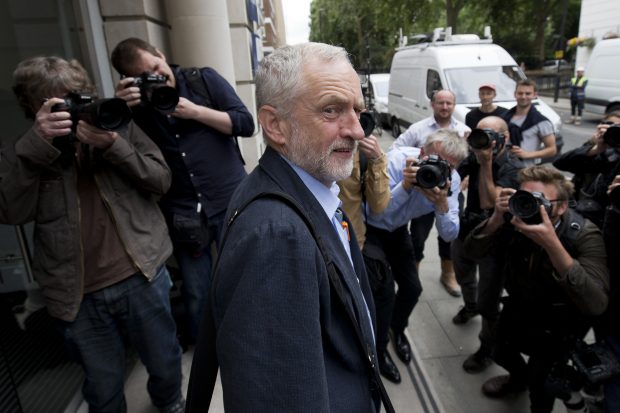One of the favourite tenets of Jeremy Corbyn supporters is that their movement is persecuted by the ‘mainstream media’ and that if only there were a fair, left-wing-friendly press in this country, then the public would be flocking to JC’s hugely popular policies. This debate has trudged its way through many acres of print already, but the insight into how Corbyn’s own team dealt with the media from former Labour spinner Matt Zarb-Cousin in an interview this week is very interesting indeed.
Zarb-Cousin was, like his former colleague Kevin Slocombe, respected by many lobby journalists as someone who dealt with their queries as efficiently as possible. This is never a given for spinners – there are advisers in all parties who are notorious for not answering their phones or never bothering to do the rounds of the desks in the rabbit warren of offices in Westminster where parliamentary and political journalists work. And though he tells the interviewer in this piece that ‘a lot of them really couldn’t be bothered to engage with what we were trying to put forward’, it was while he worked for the Corbyn team that it managed to score strong coverage of a policy announcement on Labour’s stance on the single market.
Of course, the problem for Zarb-Cousin and his colleagues is that no matter how many messages from journalists you return and no matter how detailed your briefings ahead of announcements are, they’re no good if your leader then spends the day following that press coverage dithering over whether he actually meant what was briefed, as Corbyn did following that strong coverage of Labour’s new policy on single market membership and freedom of movement.
Here lies one of the central problems for the Corbyn press team – and one that Zarb-Cousin probably arrived too late to have a decent go at fixing. He talks of an anti-Corbyn narrative in the media, saying:
‘When we talk about media bias people think we are alluding to a conspiracy but what you’re actually saying is that an editorial decision is taken that one issue is more important than another. There has been a constant focus on items that would portray Jeremy in a negative light. This feeds their own narrative about him. The way the media frames politics clearly influences public opinion.’
He has a point – and one backed up by former Lib Dem spinner Sean Kemp – that once a politician has offered a certain impression of themselves to the media, that impression sticks, even when it is unfair. Largely journalists have not had to look far for stories about mistakes made by the Labour leadership, but some, such as suggestions he hadn’t managed to bow in the right way at the Cenotaph, were ludicrous examples of the narrative beating actual news.
The problem that Zarb-Cousin encountered was that it is difficult enough to turn the narrative around when that narrative is wholly unfair, but still more difficult when your leader keeps feeding that narrative by messing up policy announcements which had initially been well-received by the press. There are a finite number of opportunities to counter misconceptions of a politician, and most of them come early on in their leadership.
The habitual response of the Left – one that was very much in evidence under Ed Miliband – is to complain about the media. A decent Labour leader – if there is a Labour party left for someone to lead – will be one who accepts media hostility as the starting point, and does everything they can to counter that. And that includes not making the jobs of their media team more difficult by thinking out loud on important policies.
But Zarb-Cousin seems far less bothered by the media than he does by the way his own party apparatus turned on Corbyn. He describes hostile briefings from the party headquarters and MPs going on the record to criticise the leader. This is not the habitual response of the Left: in the run-up to the 2015 election Labour MPs were eerily quiet both on and off the record about what they thought was going to happen to their party when the country voted. That unity is more the Labour way than the current free-for-all in which anyone can say anything with relative impunity. But those MPs decided that keeping quiet about their fears for Ed Miliband’s campaign hadn’t worked out, and so they’d be darned if they’d keep quiet again about a Jeremy Corbyn leadership.
The truth is that Corbyn’s election made clear that there are two parties in Labour who cannot and will not coexist any more. And so if there is another leader of this party after the election, they’d do well to learn from the picture that Zarb-Cousin paints of two irreconcilable tribes and try to lead just one of them, not both.







Comments